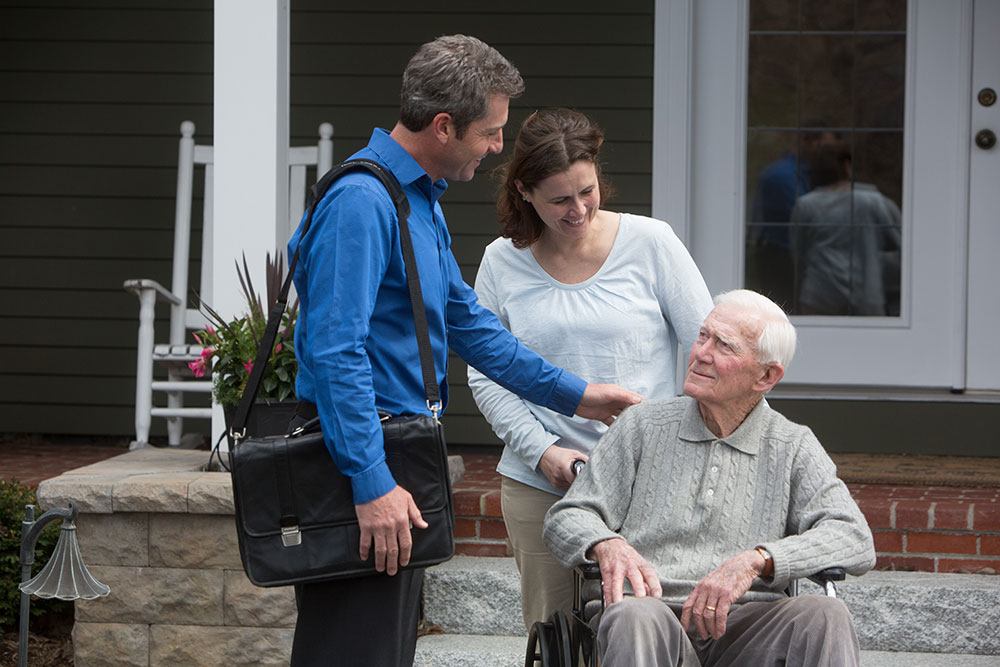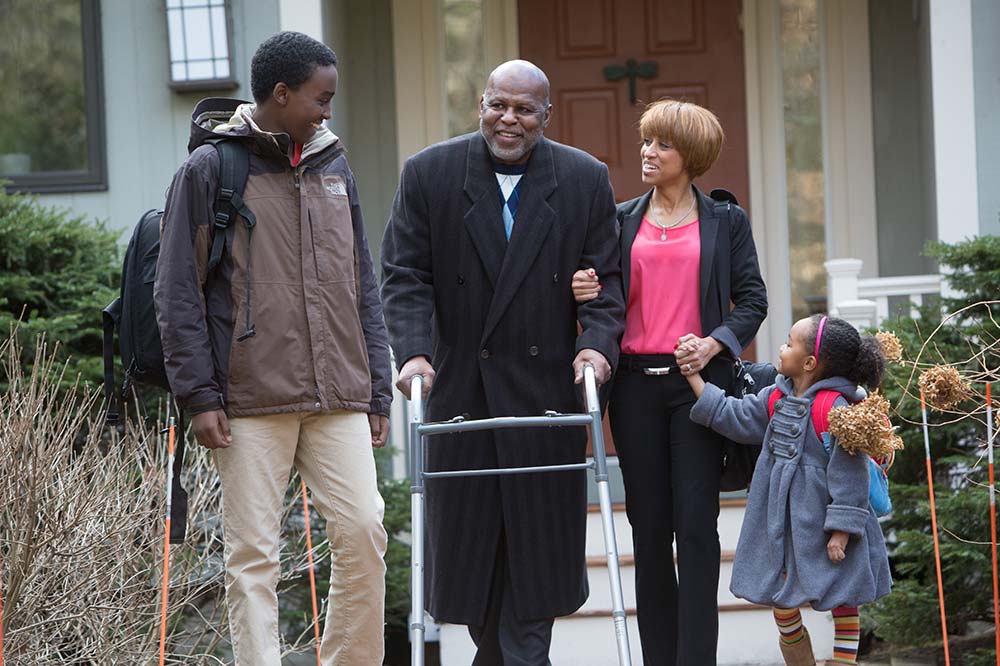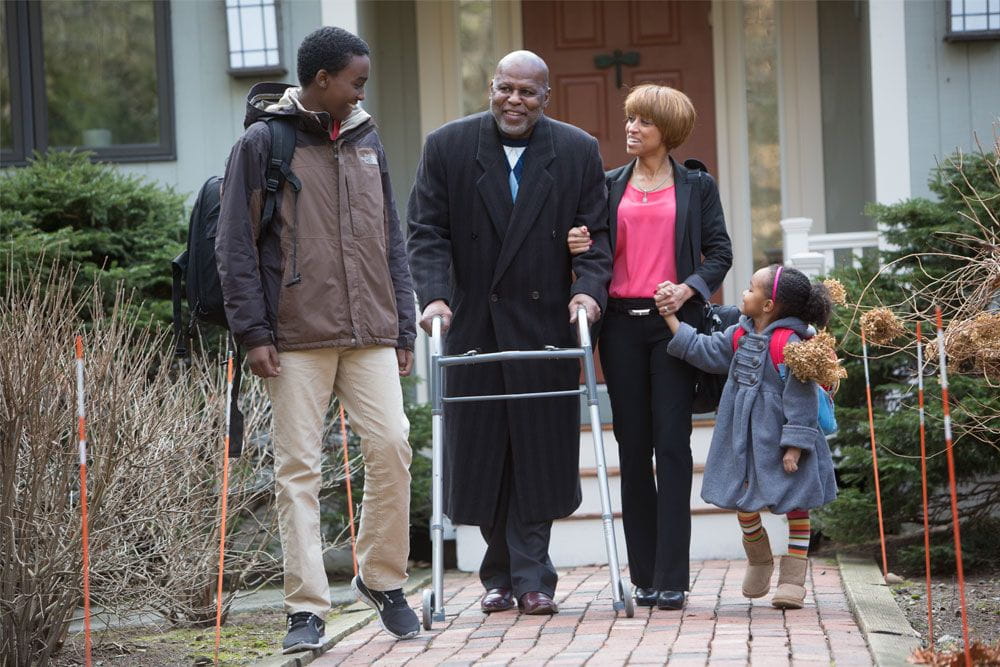"Dear millennials, you are about to get sucked into a hellhole unlike anything you've ever previously imagined. You are about to become my generation's caregivers."
So begins a Huffington Post article.
And it's pretty darned depressing. Yet let's be real - it's a conversation whose time has come...for business as well as families.
In this country, we have a tendency to talk about elders (seniors, old people, whatever you want to call them) not just as a different age...but a whole different species; like they were just dropped on the planet with white hair and their left-turn signal blinking.
Here's the thing folks: someday, if things go well, that will be us. All of us. It's like all the things our parents said to us that we swore we'd never say to our kids...until we did. Someday we'll remember walks to school through 20 feet of snow, talk about those "crazy kids" today, get befuddled by whatever the futuristic equivalent is of the blinking clock on the VCR.
Why now? Some people talk about aging Boomers. Estimates say they're turning 65 at the rate of 10,000 per day. By 2030, elderly people will be nearly 20% of the population. The Huffington Post talks about the cost of unpaid caregiving: lost work hours (21 hours a week), health-compromising stress, billions in lost wages - all problems passed on to businesses.
There's another reason. Look back at the business world and you'll see benefits throughout history born in response to challenges of the moment. Employer-sponsored child care appeared when more women entered the workforce. Commuting assistance probably appeared when people moved out from the city to the 'burbs. Modern employer-supports in general have evolved because today's smart-phone tethered, perpetually connected workforce looks nothing like the guys in 1950 who closed shop at 5 to go home for dinner. And there's no going back.
In business, we talk a lot about laying foundations not just for today's business and personal success, for tomorrow's as well. If we start thinking about eldercare as all of our responsibilities, we really are.
When I turned 20, 30 seemed like a hundred years away (more or less). I'm not 20 anymore. And yet with what I now know about the passage of time, the many decades from here to 80 feel infinitely shorter than the single one seemed between 20 and the big 3-oh.
As the HuffPo writer put it: "Welcome to the club."
So begins a Huffington Post article.
And it's pretty darned depressing. Yet let's be real - it's a conversation whose time has come...for business as well as families.
In this country, we have a tendency to talk about elders (seniors, old people, whatever you want to call them) not just as a different age...but a whole different species; like they were just dropped on the planet with white hair and their left-turn signal blinking.
Here's the thing folks: someday, if things go well, that will be us. All of us. It's like all the things our parents said to us that we swore we'd never say to our kids...until we did. Someday we'll remember walks to school through 20 feet of snow, talk about those "crazy kids" today, get befuddled by whatever the futuristic equivalent is of the blinking clock on the VCR.
Eldercare: A Conversation Whose Time Has Come
What the Huffington Post reminds us is that while we're all worried about having conversations with our parents about their retirement, someday our own children will be having those same worries about us. So building in care for the inevitable assistance for all of us - putting an organizational foundation in place that makes flexibility and accessible eldercare a regular part of doing business - is critical on a personal and business level.Why now? Some people talk about aging Boomers. Estimates say they're turning 65 at the rate of 10,000 per day. By 2030, elderly people will be nearly 20% of the population. The Huffington Post talks about the cost of unpaid caregiving: lost work hours (21 hours a week), health-compromising stress, billions in lost wages - all problems passed on to businesses.
There's another reason. Look back at the business world and you'll see benefits throughout history born in response to challenges of the moment. Employer-sponsored child care appeared when more women entered the workforce. Commuting assistance probably appeared when people moved out from the city to the 'burbs. Modern employer-supports in general have evolved because today's smart-phone tethered, perpetually connected workforce looks nothing like the guys in 1950 who closed shop at 5 to go home for dinner. And there's no going back.
Laying Foundations for Tomorrow
What else has changed? We're more mobile than ever. Where I live in Massachusetts, there are streets named for families who lived on them; who used to leave the house and move only as far as two houses down. These days, we're not just a national world, we're a global one. We're spread out. Parents are no longer close by. Which means eldercare has to be well planned enough to be accessible by a daughter in New York to reach her mom in Kalamazoo.In business, we talk a lot about laying foundations not just for today's business and personal success, for tomorrow's as well. If we start thinking about eldercare as all of our responsibilities, we really are.
When I turned 20, 30 seemed like a hundred years away (more or less). I'm not 20 anymore. And yet with what I now know about the passage of time, the many decades from here to 80 feel infinitely shorter than the single one seemed between 20 and the big 3-oh.
As the HuffPo writer put it: "Welcome to the club."





